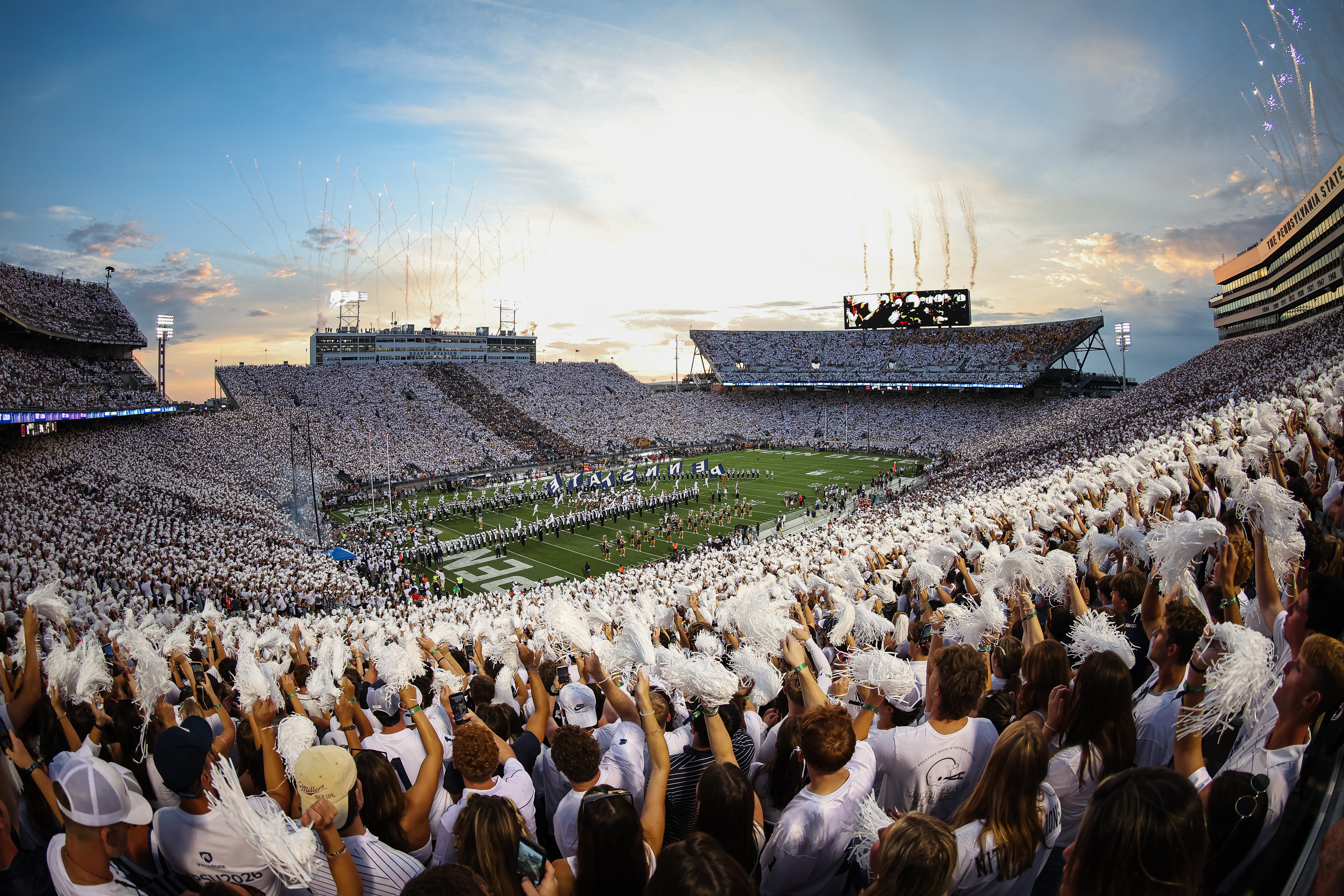
Penn State trustees OK $630 million stadium renovation
Penn State University trustees gave their stamp of approval to a $630 million renovation at Beaver Stadium after a tense Tuesday meeting during which numerous trustees expressed financial concerns with the ambitious project and some attempted to delay a vote until July.
The project ultimately was approved with 26 in favor of the project, two opposed and three abstentions.
Penn State leaders have touted the project as a way to modernize the football stadium, revamp the fan experience and bring more revenue opportunities to the university and surrounding communities.
But the renovation — which will be funded solely through football revenue and fundraising — comes as Penn State faces a multimillion dollar deficit that school leaders hope to balance by 2025. Alumni trustee Anthony Lubrano, who voted against the renovation, alluded to that deficit during his remarks on Tuesday.
He pointed to the University of Nebraska’s recent decision to modify its own stadium renovation plans in light of financial stability concerns, among other issues.
“My trepidation really centers on what’s going on in the college landscape today,” said Mr. Lubrano, who serves as president of financial services firm A.P. Lubrano & Company. “There’s no question that the stadium needs a face-lift. The only question is what that face-lift looks like and how much we want to spend.”
The other dissension came from Barry Fenchak, an alumni trustee who has an investment advising practice in State College.
Mr. Fenchak believes Penn State doesn’t have the cash, revenue or philanthropic support to fund such a project. He introduced the resolution to delay the vote until July. Only four trustees voted in favor of Mr. Fenchak’s motion to delay.
“If we take actions that are unwise actions that lead to debt load, draining the lifeblood of athletics … that’s not supportive of athletics, that’s hindering athletics,” Mr. Fenchak said before the vote to approve the project. “Just spending money isn’t supportive, especially when it’s debt.”
Prior to the resolution to delay the vote, board chair and at-large trustee Matthew Schuyler attempted to prevent trustees from voting on such a resolution. Mr. Schuyler also interrupted trustees who expressed concerns with the project’s cost on numerous occasions.
The often messy, hourlong deliberation among trustees was preceded by a 30-minute presentation by Penn State President Neeli Bendapudi, Athletic Director Patrick Kraft, and Vice President for Finance and Business Sara Thorndike. The leaders detailed the project and encouraged trustees to approve it.
There was a sense of urgency to their remarks. “The time to act is now,” they reiterated on several occasions.
This three-year project will involve a complete reconstruction of the stadium’s west side, premium seating options, new welcome center, improved restrooms and upgraded concessions. Last year, trustees greenlit an initial, $70 million phase that included maintenance projects and architectural development.
Penn State leaders have countered concerns over the renovation’s price tag by characterizing the project as necessary. Ms. Thorndike said the aging stadium — which last underwent a major renovation in 2001 — requires repairs that would cost at least $200 million.
The university considered repairing, replacing or renovating the stadium. After stress-testing a renovation scenario “extensively,” school officials concluded that this was the “only financially viable option,” Ms. Thorndike told the Post-Gazette during an interview prior to Tuesday’s vote.
“We made sure that we are requesting a project that we can pay back 100% with athletic funds, and we built conservative pro formas,” she said. “I feel very comfortable that we can afford this project.”
Upon the renovation’s projected completion in 2027, school leaders hope the stadium can be used more regularly for events like concerts or college football playoff games. They repeatedly referenced a recent concert by country artist Luke Combs held at the venue that drew a crowd of over 80,000 — Mr. Combs’ biggest audience to date.
More events like that could bolster the stadium’s economic impact in State College and Centre County, Mr. Kraft told the Post-Gazette on Tuesday.
“The point is to make sure that this building will be used … 365 days a year, and not just seven or eight,” Mr. Kraft said.
The university plans to cover the renovation’s hefty costs through dedicated revenues from football ticket sales — including new premium seating options, concessions revenue and naming opportunities — and a fundraising campaign that aims to raise $200 million.
School officials have assumed they will borrow funds for the full project over 30 years.
No tuition dollars or educational budget funds will be used to finance it, they said.
Penn State leaders have indicated, though, that they would welcome funding from the state.
In the fall, Penn State chose Populous, a global architectural firm that has drawn up blueprints for numerous NFL stadiums, to design the renovations. The school named construction companies Barton Malow, AECOM Hunt and Alexander to jointly serve as the project’s construction manager.
During her remarks to the board, Ms. Bendapudi called the renovation “vital.”
“It’s imperative that we must invest wisely, so that we can continue to compete at the very highest levels,” Ms. Bendapudi said. “Penn State athletics has for decades been an economic powerhouse for the region, and revenue from the football program is the main source of support — the main source of support — for all of our 31 [athletic] programs.
“It’s this remedy that allows over 800 student athletes to compete, gain leadership skills and advance their education.”
Maddie Aiken: maiken@post-gazette.com.
